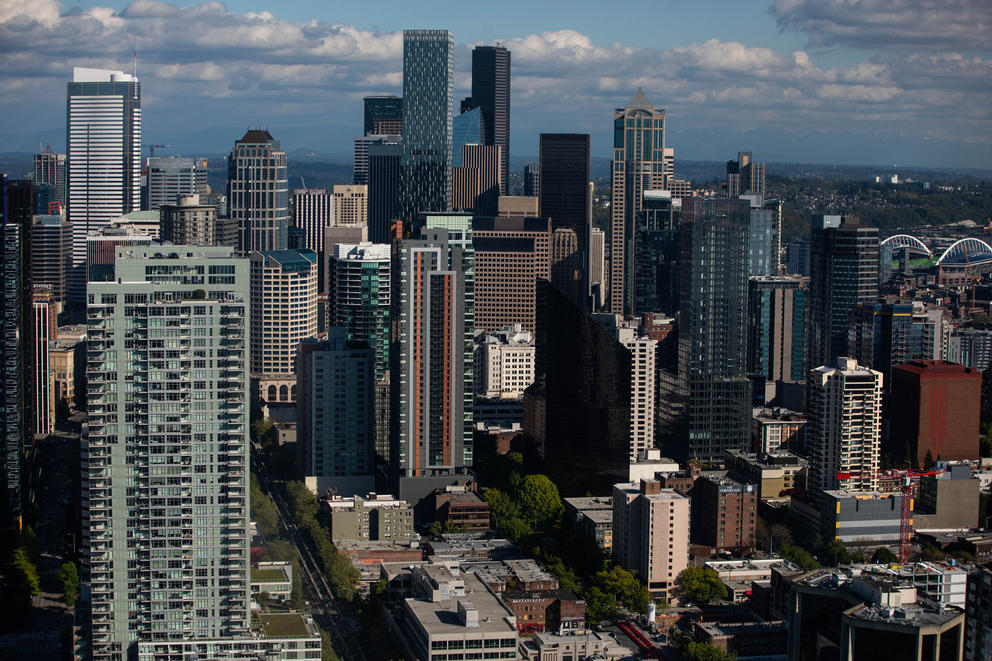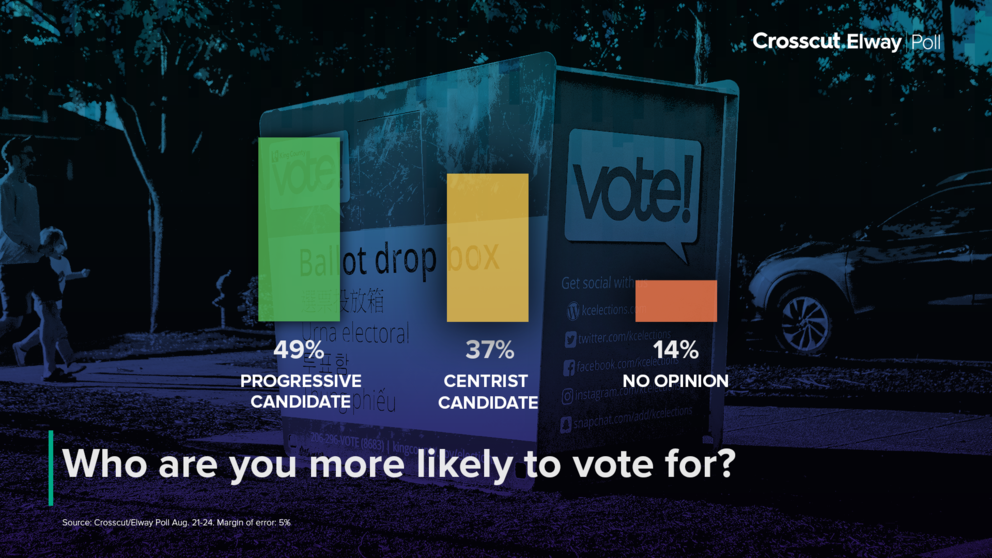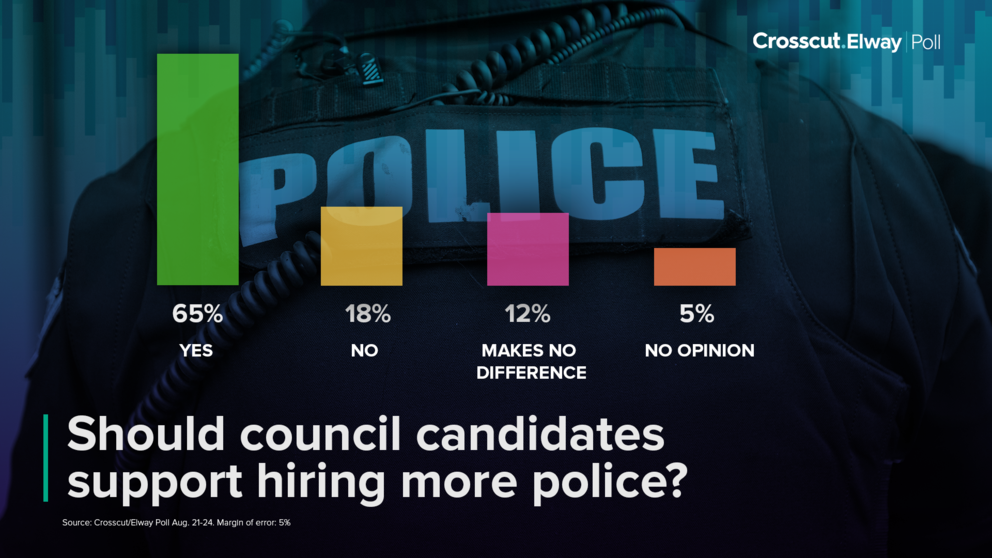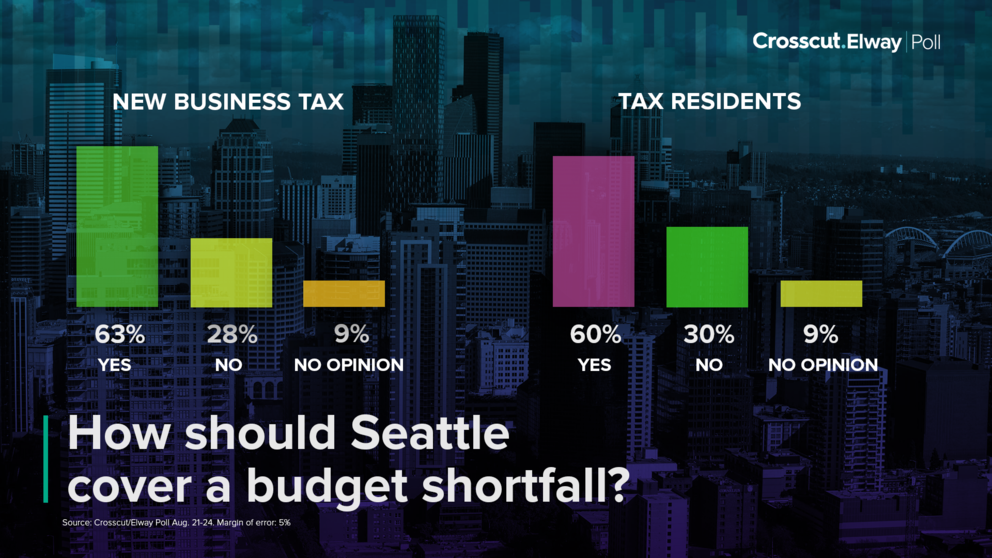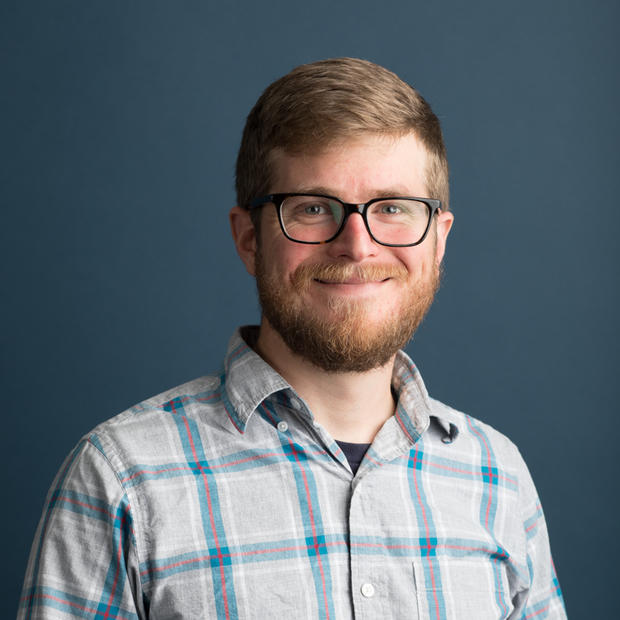Marilynn Ward, a retiree in northwest Seattle’s District 6, has lived in the city since 1984, but is disillusioned by its problems these days. This summer her car was stolen off the street in front of her house, and when it was found a week later, was filled with trash. Because of the prevalence of street homelessness, she no longer wants to go downtown.
Ward hopes the upcoming election significantly changes the City Council’s direction. She wants a council that works on hiring more police officers, clears homeless encampments, invests in downtown and, importantly, takes concrete action.
“They need to find a solution that actually works,” said Ward. “Do they do it? Hell no. They talk themselves into a job, then you think ‘Oh, they’re going to solve a problem’ and it never seems to happen.”
Jim Edwards, a middle-aged District 3 resident who’s celebrating his 20th anniversary as a Seattleite soon, also wants to see the City Council take a significantly different direction this fall. But he wants a new crop of officials to head in the opposite direction of Ward: diverting money from the police department budget to pay for social services that address root causes, building more affordable housing to address homelessness and taxing big corporations to pay for these changes.
“The current council is not taking enough action,” said Edwards. “They’ve done some baby steps, but it’s nothing meaningful.”
Ward and Edwards are illustrative of the contrasts found in the Crosscut/Elway Poll, which was conducted Aug. 21-24 via landline, cell phone and text-to-online survey. The poll surveyed likely voters who voted in at least two of the last four elections. The margin of error is plus or minus 5% with a 95% confidence rate.
Voters clearly think this election has consequences. Forty-three percent say it’s critical to the future of the city, while 37% say it’s important but not critical.
Forty-four percent of respondents said they want to significantly change the direction of the council. Another 41% said they want to modify the council’s direction a little. That’s compared to just 9% who want to maintain the council’s current direction and 6% who said they have no opinion on the matter.
Digging deeper into the data shows centrists are more likely to want significant change on the council than progressives. Among those who said they want significant change 57% said they would support a more centrist candidate. For those who want moderate change, 67% said they would vote for a progressive.
Still, when asked whether they were more likely to support a progressive or centrist candidate, 49% of all respondents said they want a progressive versus 37% who want to vote for a centrist and 14% who had no opinion.
Those numbers appear to bode well for progressives this fall. But things get a lot fuzzier when voters are asked about specific candidates, issues and policies.
Respondents were asked who they were more likely to vote for between the more progressive-leaning and centrist-leaning candidates in their district. The sample sizes in each district were too small to be statistically significant. But taken together, the answers show voters are nearly evenly split between progressives (33%) and centrists (31%) or still undecided (36%).
Regardless of political leaning, voters still agree on the perennial top issues facing the city. Asked to pick from a list of issues influencing their vote this fall, 68% of respondents said homelessness, 51% said crime, 44% said affordable housing, 43% said policing and 37% said drug abuse.
But when asked how to address those big problems, Seattleites fall across the political spectrum.
Asked whether to hire more police officers with additional training or divert police funds to social programs that help address root causes of crime, 64% of respondents said hire more cops, 30% said divert funds and 6% had no opinion. Support for hiring officers has grown significantly since 2021, when 54% of Crosscut/Elway Poll respondents said they wanted more police.
Similarly, 65% of voters are more likely to support a candidate who wants to hire more officers, compared to 12% who said it makes no difference and 18% who said they would vote against a candidate with that position.
On homelessness, 55% respondents support directing city resources into building more permanent housing and mental health services, compared to 41% who want the city budget to fund clearing encampments in public parks and on sidewalks.
In a similarly progressive vein, 72% of respondents said they want a candidate who supports a new department that provides a non-police response to public emergencies. Seventy-two percent of respondents also said they would support a candidate who uses city funds for substance-use treatment. At the same time, 59% of voters would also support a more conservative candidate who wants to make public drug possession a gross misdemeanor and give the city attorney authority to prosecute those arrests.
Voters broadly support new taxes to help pay for programs. Sixty-three percent said they support some form of new tax on Seattle’s largest businesses, compared to 28% who oppose. Similarly, 60% of voters said they support some form of new tax on the city’s wealthiest residents. And a majority of voters said they will either definitely (28%) or probably (29%) vote for the renewal of the Seattle Housing Levy property tax.
Seattleites have widely seen themselves as progressives in the past, but this poll complicates that self-conception.
Edwards, the District 3 voter, said the election of Mayor Bruce Harrell and Jenny Durkan before him showed a rightward turn in the Seattle electorate.
“It’s an embodiment of how far the Overton Window in the U.S. and Seattle has shifted to the right to be far more conservative,” he said. The Overton Window refers to the acceptable range of policies a government can enact. A shift of the window means more conservative or progressive policies are now acceptable to an electorate.
Some of Seattle’s out-and-out leftists think the progressive label is broadly misapplied in this town. Zach Gardner, a voter in District 7 who responded to the poll, is an avowed communist. He points to his current council member, Andrew Lewis, who’s up for re-election this fall as the more progressive candidate in his race.
Gardner said that Lewis “claims to be progressive, but sides with [City Attorney] Ann Davison to support a new war on drugs. That’s conservative.”
In June, Lewis was the decisive vote against a bill to give Davison authority to prosecute public drug possession, but has since worked on a compromise version of the bill, with more emphasis on treatment and diversion, which he is likely to support when it goes to a vote this fall.
But for voters like Clark, a middle-aged District 3 resident who asked that Crosscut not publish his last name, this fall is a chance to shift away from progressive ideology on the council.
“I’m not in favor of activist policy or activist personalities on city council,” he said. “We need maintenance and stability more than we need to be in national headlines for crazy initiatives coming from West Coast liberal land.”
There’s a degree to which Seattle is in for a “change” election no matter who voters elect. Of the seven district council seats up for grabs, only three have incumbents vying for re-election. On top of that, citywide Councilmember Teresa Mosqueda is running for King County Council and has a good chance of winning.
But the kind of change we’re in for remains an open question.

